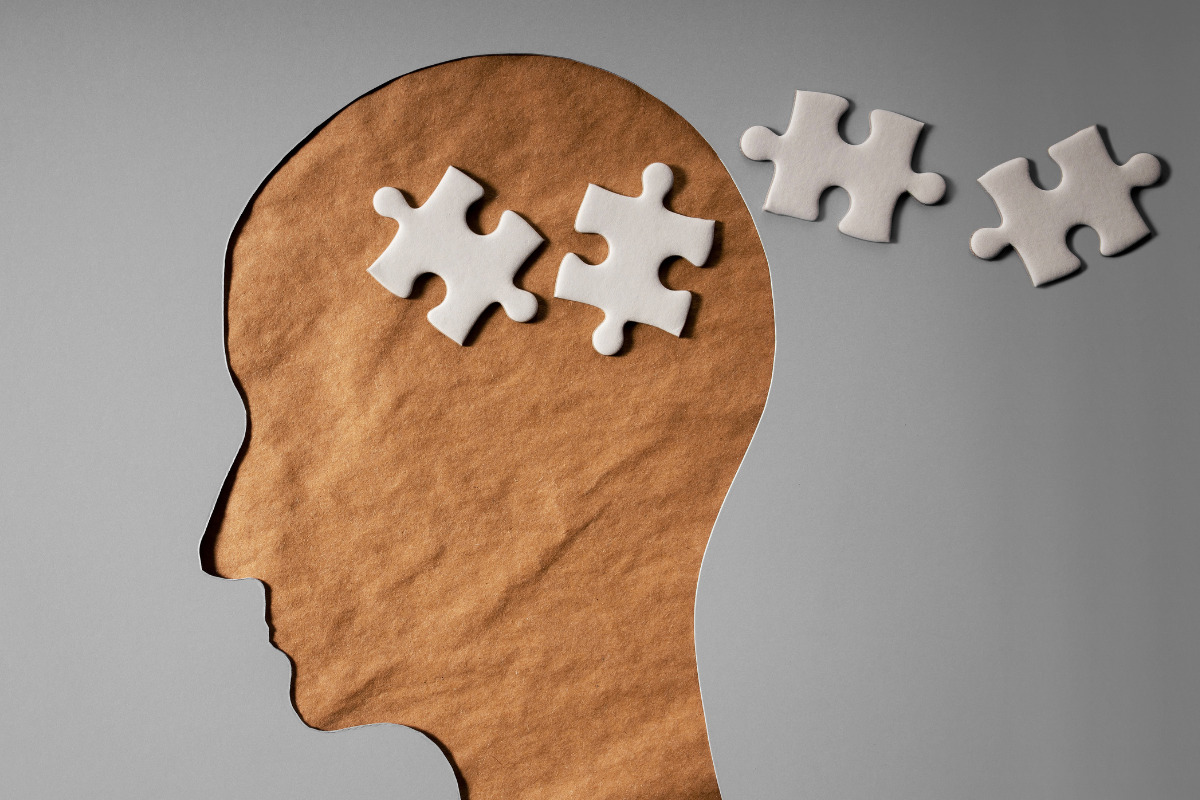How to Deal With Memory Loss Around Menopause

You’re used to being on top of your game—juggling work, family schedules and life’s to-do list. But around menopause, you might be one of the millions of women who start to notice memory loss and changes in your cognitive functioning. Memory loss around menopause can range from annoying to deeply concerning, and bring up feelings that range from insecurity about your work abilities to fears around dementia.
Contributors to Memory Loss
Coping with and improving memory issues starts by understanding the contributing factors that converge around menopause. Memory loss during menopause can be attributed to both hormonal changes and lifestyle-related contributors.
Hormonal Fluctuations
The primary driver of cognitive changes during menopause is its fluctuation in hormone levels, particularly estrogen. Estrogen plays a crucial role in memory and cognition, and its decline can impact memory and concentration.
However research shows that memory loss normalizes after menopause. That means that even though estrogen levels remain low, cognition and memory improve.
Studies are conflicting about the effect of menopausal hormone therapy (MHT) on memory and cognition around menopause. While not FDA-approved to treat cognitive issues, some people have seen improvement in memory-related symptoms after starting menopausal hormone therapy (MHT). Experts do not recommend starting MHT solely to address menopause-related memory loss. If you’re bothered by memory loss, discuss this concern along with other health priorities with your provider to determine whether MHT is right for you.
Sleep Disturbances
Hormonal changes, as well as menopausal symptoms like night sweats, disrupt sleep for a large proportion of women in midlife. Research shows that both short and long-term sleep issues lead to issues with concentration, attention, and memory.
Stress & Mood Changes
Life is frequently stressful, and even more so in midlife for many people. Combine this with hormonal fluctuations and many people in midlife notice changes in their mood regulation. Anxiety and depression, both conditions that can affect memory and cognitive functioning, become much more common in midlife.
Lifestyle Changes to Improve Memory
There’s no magic bullet for memory loss around menopause, but taking care of your brain and body through a healthy lifestyle can make an important difference in improving your memory and thinking.
Regular Exercise
EUltimately, exercise is a major way to improve brain health and reduce your risk of developing dementia and Alzheimer’s disease. Even one exercise session can improve your cognitive functioning and memory. Commit to an exercise program and research shows that you’ll get even more benefits in your short term and working memory.
Balanced Diet
Nutrient-rich foods, especially those high in omega-3 fatty acids, antioxidants, and vitamins, contribute to brain health. Include fish, nuts, fruits, and vegetables in your diet.
Quality Sleep
If you know that your sleep is disrupted by night sweats or breathing issues like sleep apnea, prioritize addressing these concerns to make the biggest difference in your sleep quality and quantity. No matter the contributors, experts recommend following guidelines for healthy sleep hygiene to build habits that promote consistent, high quality sleep.
Mental Stimulation
Engage in activities that challenge your brain, such as puzzles, reading, or learning a new skill. Mental stimulation can help maintain cognitive abilities.
Alternative Therapies for Memory Loss
Exploring alternative therapies can provide additional support for managing memory loss during menopause.
Mindfulness and Meditation
Practices that promote mindfulness and meditation can reduce stress and improve symptoms of anxiety and depression. Incorporate mindfulness techniques into your daily routine can make a difference in your ability to think clearly and constructively.
Herbal Supplements
While the research about herbal supplements does not definitively show meaningful effectiveness, some women report that they are helpful in managing their cognitive and memory challenges. It’s crucial to consult with a healthcare professional before incorporating supplements into your regimen.
Acupuncture
Although research results are mixed, there is some evidence that acupuncture can help ease menopausal symptoms like hot flashes and insomnia, which could lead to improving memory loss. Consult with a qualified practitioner to explore this option.
When Should I Seek Care for Memory Loss?
While memory loss around menopause can be worrying, it’s important to remember that these lapses are considered a normal—although frustrating—symptom of menopause. If you have concerns about the extent of your memory challenges, talk to your primary care provider about your symptoms.
The Alzheimer’s Association advises visiting your doctor if you experience any of these changes that might indicate more significant issues:
- Memory loss that disrupts your daily life
- Challenges in your ability to plan or solve problems, like following a recipe or paying bills
- Difficulties completing familiar tasks like driving to a familiar location
- Confusion with time or place
- Trouble understanding visual images and spatial relationships
- New problems with words when speaking or writing, like calling things by the wrong name
- Misplacing things and finding them in unusual places
- Decreased or poor judgment, for example when dealing with money or personal hygiene
- Withdrawal from work and social activities
- Changes in mood and personality, and becoming easily upset when out of your comfort zone
Managing memory loss during menopause involves a multifaceted approach that considers hormonal changes and lifestyle adjustments. By understanding the causes and embracing proactive strategies, you can navigate this phase with a focus on cognitive well-being. Seek guidance from healthcare professionals and build a support network to help you through the journey.
We’re here for support and guidance to help you through this phase of your life. For more support around your menopause journey, including help with memory loss, download Midday from the App Store or visit us at Midday.Health.
Sign up for more unique women’s health content
By submitting this form, you agree to the Lisa Health Privacy Policy and Terms of Use


